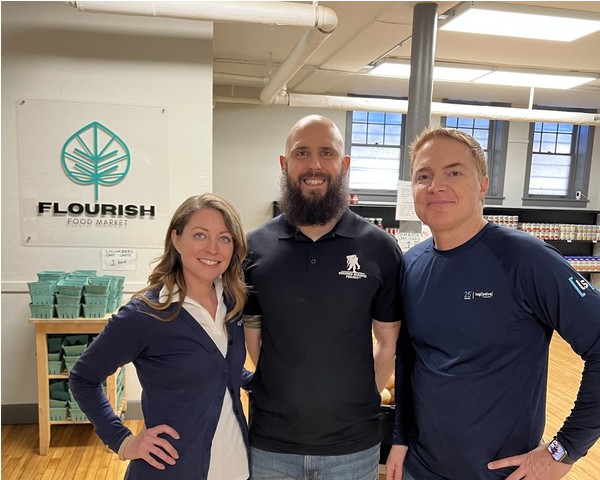Do Unto One Another as We Wish AI Would Do Unto Us
Written by Stephen Clark | Business Architecture and Salesforce Capabilities Lead
James Baldwin is reputed to have said, “Next to our love, nothing is more valuable than our labor.”
In the information economy, where digital creatives tempt us with compelling experiences we pay precious resources to consume, what do you think the most valuable commodity of exchange is?
I believe Our attention is our second most valuable tender.
This week’s reflection is an invitation to share how you value, protect, and spend your attention, as I share growing awareness of the benefits to protecting mine.
AI has already, or will probably, get layered into most if not all aspects of our solution design and delivery pursuits. Should it? If it does, what problems from experimentation, overly rapid introductions to production, too little understanding of integration requirements, or a lack of forecast benefits from monitoring, governance and risk mitigation can be avoided?
Do you have questions about how to do this proactively, responsibly, cost effectively, in a timely way, for good (enough) and sustainable reasons? If so, we want to learn with you and co-create durable approaches to answers that evolve over time with as few sunk-costs as possible.
Whatever your relationships with AI, we all benefit from developing a shared vocabulary around what it is, why it matters, and whether we consciously intend it to have the impacts it has on us individually and in community.
Whether you model your organization’s ecosystem using the Business Architecture Body of Knowledge, TOGAF, Archimate, the Business Motivation Model, the Zachman Framework, Journey Maps, or you limit yourself to ITIL or COBIT, we can all benefit from ‘heatmapping’ the relevance, benefits, costs, and impacts of implementing AI.
- Are you doing aspects of this today?
- If you want to begin this process, which roles in your organization are you recruiting to create insights?
Depending upon whether you or your organization fit into one or more of three categories of interested parties, do you think aspects of Ethical AI creation, distribution and consumption differ?
- Some of us are creating and selling AI solutions so others may meet goals and objectives faster, to better outcomes, in more satisfying manners.
- Some of us want or need to consume others AI solutions and hope to do so cost effectively, in timely ways that require as little training and fit as seamlessly into our current workflows as possible.
- Some of us are researching, measuring, impact-assessing and opining on the intersections between the first two categories of interested stakeholders.
Given these differently motivated sets of perspective, how do you think we should and could work together to create and use solutions that reflect the following traits?
- Transparency and Explainability
- Fairness and non-discrimination
- Privacy and data protection
- Integrity-based data sourcing
- Secure storage
- Controlled access
- Regulated deletion practices
- Proportional Useful at Human Direction without doing harm
- Sustainably available and performative
- Reliability & Robustness
Are any of these characteristics in tension?
As participants in communities bringing AI features to offer, which of the above characteristics represents the most aspirational goals for product developers, tests, and/or operational leaders?
- As consumers of AI experiences, which of the above characteristics matter the most to you?
- From whichever categorical perspective connects with you the most, which of these aspects of Ethical AI feel the least negotiable? For those characteristics, how do evaluate your AI feature providers of choice to determine whether they meet your bar(s)?
We love to incubate insights, recommendations, plans and possible outcomes with you, and for you. We hope to contribute as much for your personal and team-based growth as you teach us. These conversations and the insights we find together are impacting not only our professional lives but our personal journeys through everyday experiences. If you, like me, don’t want to give away your attention frivolously, please join this intentional discussion and help create confidence in the ways we create and consume emergent general artificial intelligence (or the wanna-be facsimiles possible so far).
To discuss more about these topics and how your organization can benefit from Logisolve, Microsoft, Salesforce and other partners, join me November 7th, at the Midwest Enterprise Architecture Community Collaboration annual conference. #MACC2024.

Volunteering Opportunities in 2024



Available Positions
If you have individuals in your network that may be a fit for any of the positions below, this is a great time to make a referral. Use our referral email address: referrals@logisolve.com
Below are some of our active Client Opportunities. There are additional positions available. Please reach out to the email above if you’re interested in learning more!
Project Management
- Program Manager – Finance/FIS – Hybrid, Minneapolis
- PM/Scrum/RTE – SAFe certification preferred – Hybrid, Minneapolis
- Sr. Scrum Master – Technical/API Integration – Hybrid, St Paul
Business Analysis
- Business Analyst/Business System Analyst – Financial Services – Hybrid, Minneapolis
- Business System Analyst – OKTA experience – Hybrid, Minneapolis
- BA – Salesforce Sales Cloud experience – Hybrid, Eastern Suburbs
- Business System Analyst/Data Analyst – API integrations – Hybrid, St Paul
Digital Solutions
- Technical Lead/Developer – Salesforce Service Cloud – Hybrid, Eastern suburbs
- QA Engineer – Selenium, API Integrations – Hybrid, St Paul
- QA Tech Lead – Automation, Selenium, C# – Hybrid, Minnetonka
Data
- Sr. Data Analyst – GCP, Tableau, Python, Looker – Remote
- Sr Cloud DataOps Engineer – GCP, Health Care experience – Remote
- DevOps Engineer – Salesforce – Hybrid, Eastern Suburbs
- ERP Process Lead – warehouse business experience – Hybrid, Minneapolis
